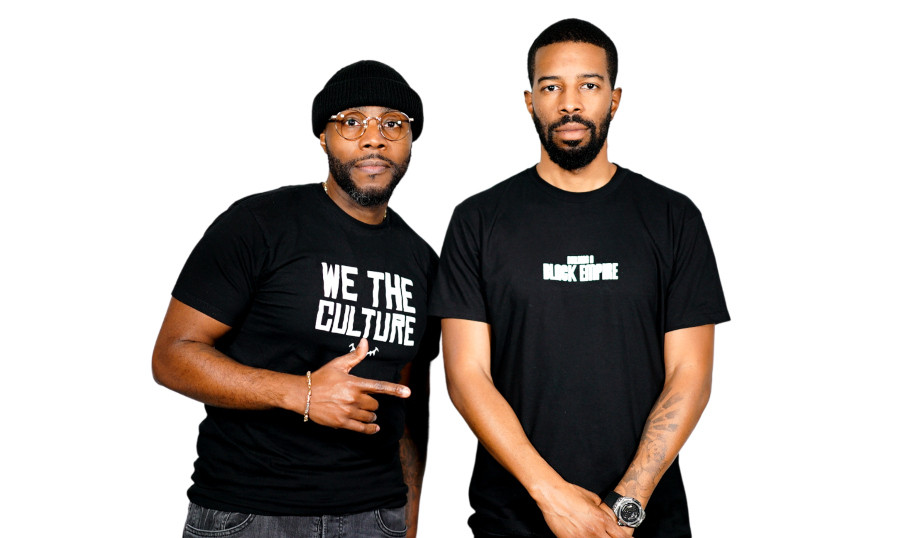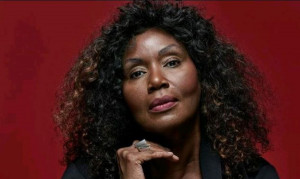Both Brown and Chambers learned about financial literacy a little bit later in their lives. Brown didn't have access to financial resources or knowledge on what to do with his money. He used his financial misadventures as a teenager to learn some tough lessons.
“When I first got a credit card, I knocked it within the first month to buy shoes and clothes. If I had the education on using credit cards, then I would have done a lot better,” recalls Brown his early lessons on finance and budgeting.
Later, he started hanging out with people who had both resources and financial acuity when it came to real estate and investing. Brown purchased his first house at 29 years old. He flipped properties to generate additional income while he worked his day job.
Chambers shares a similar journey. “In early years you don’t understand the difference but as you grow older, you see how people treat you based on where you live and the colour of your skin but I never let it hold me down. I used it as a motivation to lift myself up,” says Chambers.
He studied accounting and finance. He worked as a DJ for 14 years but decided to start his own business. Then, he began working a day job and sold cars in his free time.
In 2014, Chambers was laid off. This gave him a strong disliking for working as an employee. Fast forward to 2021, Chambers is now a serial entrepreneur. He owns several businesses including a car rental business, a dealership, and an investment company.
Their first initiative as a duo was in early 2020, where they mentored a group of seven people on real estate and started a new business. They taught them about the four basics: savings, investing, budgeting, and credit.
Shericka Hepburn, one of the seven students, says the program helped them carve a profitable financial journey.
“I first invested into stocks that are doing very well. I learned how to invest in real estate projects to generate passive income. We also started a photo booth company. Craig and Dean don't leave you stranded after they're done teaching you. We can always reach out to them for questions,” explains Hepburn.
Brown and Chambers realized that there's a market for their work. Most importantly, the duo wanted to bring this knowledge to young people so that they would understand it now, instead of learning it the hard way through the experience.
With this in mind, Chambers and Brown wrote a book called Don't be a Waste Yute: The Financial Literacy Guide which sold over 1000 books in Canada, the United States, and the Caribbean.
This led to the idea for Checks Over Strikes in February 2021. The company provides various services such as one-to-one mentorship and group sessions.
They also run a live stream called "Bettering Your Relationship With Money". It's a four-week course that discusses money management. Key topics include: what to do with money, how to budget money, time management, celebrating wins, and mental awareness.
“If your mind is not right, you cannot be responsible with your money,” stresses Brown.
Generational Wealth
Chambers thinks that the difference between rich and poor people is the mindset.
“It all starts with a shift in the mindset to apply what you've learned. Always remember, your current situation is not your final destination,” states Chambers.
Examining the racial wealth gap, the duo says that the information should pass on from generation to generation.
“We aren't taught about wealth in the Black community. If you or your parents don't know about generational wealth, then how can they pass on that knowledge to you?” asks Brown.
He also explains the importance of celebrating both big and small victories.
“We tend to put ourselves down instead of lifting ourselves up. But we've got to change that mentality. If you feel that you have accomplished something, you must share and celebrate it,” says Chambers.
Working Together
After working as an employee for 16 years, Brown had an epiphany about two years ago.
“I felt I had so much more to grow. I came from a marginalized neighborhood and I felt a strong urge to help my community. But I didn't really have my own projects or initiatives,” explains Brown.
Two years ago, Brown had discussions with like-minded people, including Dean, to help him start doing something for their community, starting with financial literacy.
“I have no regrets. I'm doing something that I'm passionate about, I'm doing something that I want to do and to me, it doesn't feel like a job, I feel like I'm building a community,” says Brown.
He adds, “If you want to do something and you have the passion to do it, just do it. It's better to fail at something than to never have tried it. Nothing ventured, nothing gained. Push through the pain because there is light at the end of the tunnel.”
Likewise, Chambers has always wanted to teach people how to use credit effectively.
Recently, they have started a self-led online money management foundations course that focuses on investing, credit, savings, budgeting, and taxes.
They also share tidbits of the information on their Instagram account. The online course is free until July 31. Interested people can visit the company’s website and sign up. Users can also get a bonus First-time Homebuyers course to learn about the basics of real estate.
What is unique about their methodology is that it simplifies financial concepts and makes them more 'relatable' instead of talking about complex theories. The course speaks the language of the masses so that everyone can understand, regardless of their educational background.
“We try to make concepts fun, interactive, and educational to help people retain information,” says Brown.
The courses are primarily for young Black people who want to become familiar with financial literacy. For now, their target audience is the Black community because they have been marginalized for far too long.
“We know that these communities don't necessarily have the resources to access some of this information,” explains Brown.
Checks Over Strikes is working with a few nonprofit organizations to make the courses and books accessible to people who can't afford to pay. It has sponsors who give donations to help buyers purchase the books and online programs. Brown and Chambers welcome the community to join their organization and get the word out. “We can go much further if we work as a team,” explains Brown.
At this juncture, the duo wants to change the misconception that Black people cannot work together to change the world.
“All you have to do is take one look at the influence of Black culture in hip hop and in fashion to realize that this isn't true,” clarifies Brown.
Although it is a for-profit business, Checks Over Strikes puts the needs of the people first, and profit second.
“Our main job is to build a community. In order to build a community, you have to educate your community first,” explains Chambers.
They have received many positive testimonials from people who have read their books and taken their courses. Much of the information was life-changing for their clients and helped them out in many ways, from improving their credit score to improving their investment portfolio.
Tariq joined the online class after reading and being inspired by the book.
“I wasn't very good with saving. Joining their class helped me learn more about saving. I learned different techniques, including investments. Dean and Craig provide you with actionable outlines on what you can do to make progress. They break it down step by step,” he says.
Brown and Chambers encourage more financially astute people to teach those who don't have access to such information.
“Let's team up and build this community to help everyone,” says Brown while his partner Chambers echos, “At the end of the day, our goal is to make sure that people have this information. So the more people we can reach out to, the better, whether it's through us or through somebody else.”
Brown and Chambers have plans to roll out their course into school curriculums and discussions are underway with school boards.
“We have creative content that helps individuals learn about new concepts in a fun and engaging way,” explains Brown.
Before signing off, the duo offers some tips on financial literacy and entrepreneurship.
Tips on Financial Literacy
- Pay yourself first.
- Remember cash is not king, it's credit. Because people judge you based on your credit.
- Money is a tool and it should be treated as such. Holding money serves no purpose. Make sure that your money is making you more money round the clock.
- Make this a habit:
- Take a piece of paper.
- Draw a "T", one side is for 'needs', the other side is for 'wants'.
- Check your financial statements to classify your recent expenses into 'need' vs. 'want'.
- Once you have complete insights into your cash flow, it becomes easier to make your money work for you.
- A careful understanding of your needs versus wants will help you grow your wealth and know how much you can spend.
Tips for Entrepreneurs
- Entrepreneurship is not for everybody and one shouldn’t get into something because other people are doing it. Follow your passion.
- Allocate blocks of time for your passion project during the weekend, or whenever you get the time from your day job. Start small and grow your side business. Don't be afraid to dump a failing business and start anew.
Finally, Brown wants to say, “We are Checks Over Strikes and we want to put checks in your name with no strikes against it.” Chambers says it a bit differently, “Just remember checks in your name, no strikes against it.”

 By
By 






